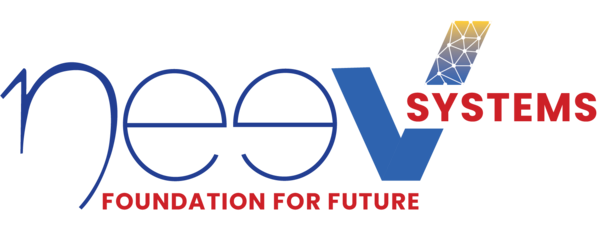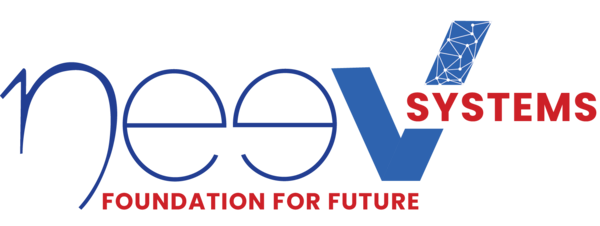In today’s data-driven landscape, enterprises are constantly seeking ways to harness the power of data, streamline operations, and make informed decisions that drive growth. This pursuit has brought Enterprise integration service providers into the spotlight, offering tailored solutions to meet the unique needs of organizations across industries.
Selecting the right enterprise integration service provider is not just another decision – it’s a strategic move that can significantly shape the trajectory of your company’s operations, insights, and overall competitive edge. With an array of options available in the market, business leaders must approach this decision-making process strategically.
Choosing the ideal integration platform isn’t merely a matter of selecting a vendor; it’s about shaping the future of your business processes, ensuring operational efficiency, and staying competitive in an ever-evolving market. It’s a choice that carries the weight of transformation, and it can define how agile and resilient your enterprise remains in the new-age dynamic landscape.
Read more about Software Integration : Challenges & Solutions for Enterprises
Imagine a scenario where a well-established company decided to cut costs by choosing a “budget-friendly” integration service provider. However, over time, they realized the hidden costs – the integration solution turned out to be unreliable and prone to frequent breakdowns, disrupting daily operations. Due to data inaccuracies, the company failed to make informed decisions or respond to market changes promptly. Poor vendor choice dented their bottom line with costly fixes and eroded their competitive edge, as customers and partners lost confidence in their reliability.
This is just one example of the real-world impact of poor vendor choice that impacts the overall growth and success of a business.
In this blog post, we will explore the critical considerations and questions you should ask when seeking a service provider that aligns seamlessly with your business goals and objectives. From transparent pricing models to well-defined scopes and comprehensive cost analysis, we will explore the key considerations that can make a substantial difference in optimizing your enterprise integration investments.
Roadblocks in Enterprise Integration Vendor Selection
Business leaders across industries often face some common challenges when selecting an integration partner –
1. Lack of Transparent Pricing Models
One of the foremost challenges is the absence of clear and transparent pricing models from integration vendors. Many organizations find themselves in a dilemma when confronted with vague pricing structures and hidden fees, making it difficult to accurately assess the total cost of their integration project. The lack of transparency in pricing can lead to budget overruns, strained finances, and disputes with vendors.
Pro Tip: Demand detailed cost breakdowns upfront to avoid hidden expenses.
2. Unclear Scope of Work and Deliverables
Often, organizations cannot clearly define what they can expect from the integration vendor. This lack of clarity can result in misunderstandings, delays, and disputes over project expectations and deliverables. Clear documentation of the scope of work is vital to align both parties and set the stage for a successful integration project.
Pro Tip: Create a well-defined project scope document for clear expectations.
3. Inadequate Cost Analysis and Planning
Insufficient cost analysis and planning are common hurdles organizations encounter. Without a well-defined strategy for assessing costs and planning the budget, companies risk underestimating the financial resources required for a successful integration. It can lead to unexpected expenses, budget overruns, and potential project delays.
Pro Tip: Develop a comprehensive cost estimation process to prevent financial surprises.
4. Integration Complexity and Technical Challenges
Enterprise integration can be inherently complex, with multiple systems, technologies, and data sources involved. Technical complexities in integrating diverse applications, databases, and systems can slow down the integration process and result in unexpected setbacks, especially when dealing with legacy infrastructure.
Pro Tip: Conduct a thorough system assessment to prepare for technical complexities.
5. Change Management and Organizational Resistance
Introducing a new integration system often requires changes in workflows, processes, and practices within the organization. Resistance to change from employees and stakeholders can be a significant challenge. Managing these changes effectively, aligning the team with the integration goals, and ensuring a smooth transition can be difficult but essential for success.
Pro Tip: Build a well-mapped change management strategy to ease transition.
6. Data Security Concerns
Protecting sensitive data and maintaining compliance with industry regulations are paramount. Organizations often struggle to ensure that their chosen integration vendor can meet the necessary security and compliance requirements, including data encryption, access controls, and adherence to data protection laws.
Pro Tip: Prioritize vendor security checks to ensure data protection.
7. Post-Implementation Support and Scalability
After the integration is complete, organizations may face challenges related to post-implementation support and scalability. It’s crucial to have a plan for ongoing support, system maintenance, and ensuring that the integrated systems can grow and adapt as the organization’s needs evolve.
Pro Tip: Establish long-term support plans and scalability options.
8. Vendor Lock-In and Long-Term Commitment
Choosing the wrong integration vendor can lead to vendor lock-in, where an organization becomes dependent on a specific technology or service. Avoiding this lock-in and ensuring the chosen vendor can provide long-term support and flexibility is a challenge that organizations must address.
Pro Tip: Choose vendors with flexibility and future-proofing in mind to avoid dependency.
Navigating these challenges requires careful planning, open communication with potential vendors, and a thorough understanding of your organization’s integration needs and goals.

Simplify Integration for Maximum Impact
Choosing an Enterprise Integration Service Provider: Key Quality Considerations
In the ever-evolving landscape of new-age enterprises, making the right choice in an integration platform is pivotal. To ensure your organization’s success, several critical aspects must be considered when selecting your enterprise integration service provider. Here’s what to keep in mind:
1. Scalability: Your chosen integration platform should have the capacity to accommodate growth seamlessly, handling increased data loads, new applications, and evolving business requirements without compromising performance. Ensuring it can keep pace with your organization’s growth and deliver real-time data processing is paramount.
2. Integration Adaptability: The integration platform must be adaptable enough to embrace new technologies and emerging integration patterns, be it connecting cloud-based applications, IoT devices, or microservices architecture. Its architecture should accommodate various integration scenarios and multiple integration styles to align with your diverse integration needs.
3. User-Friendly Experience: Usability and user experience are instrumental in speeding up development cycles and reducing time-to-market. Look for a user-friendly interface, intuitive workflows, and low-code development capabilities to empower integration specialists and business users in effective collaboration.
4. Data Security and Compliance: Data protection and compliance with industry regulations are non-negotiable. The chosen platform should offer robust security features, including encryption, authentication, and authorization mechanisms. Compliance with industry standards should be evaluated meticulously to safeguard sensitive information.
5. Customization: Your integration platform should enable the creation of custom workflows, data transformations, and business logic to suit your enterprise’s specific needs, facilitating the orchestration of complex operations seamlessly.
6. Real-time Capabilities: With the accelerating pace of business, real-time integration and processing are increasingly crucial. Look for an integration platform with the capability to handle real-time events, notifications, and data synchronization across disparate systems in a fraction of a second.
7. Cost Efficiency: Balancing quality with costs is essential. Ensure the integration platform’s pricing model aligns with your usage patterns, providing value for your investment. Besides upfront licensing costs, evaluate long-term costs, including maintenance, training, and implementation expenses, to make a cost-effective decision.
8. Customer Support: The relationship with the integration platform provider extends beyond the initial setup. Access to robust support, regular updates, and speedy query resolution create an excellent and satisfactory customer experience.
9. Future-readiness: While predicting the long-term trajectory of technology is challenging, select a platform that demonstrates a commitment to ongoing development and evolution. A clear roadmap, regular updates, and a history of adapting to industry trends indicate that a vendor is future-ready.
Crucial Queries for Selecting Your Enterprise Integration Service Provider
1. What Are Your Organization’s Data Management Requirements?
To make an informed choice in selecting an enterprise data management service provider, it’s imperative to have a comprehensive understanding of your organization’s data landscape. Start by identifying the specific types of data your organization handles – structured, unstructured, transactional, or analytical. Additionally, consider the desired outcomes of your data management efforts, whether it involves enhancing analytics, ensuring compliance, or improving operational efficiency. Such an insight into your data needs will empower you to assess the alignment of potential service providers with your organization’s distinct requirements.
2. How Will the Vendor Safeguard Data Privacy and Security?
Irrespective of your industry, the security and privacy of your data should be at the forefront when selecting an enterprise data management service provider. To evaluate a provider’s data security capabilities, deep dive into the following aspects:
- Gain a thorough understanding of the measures taken by the provider to ensure data security.
- Inquire about the encryption standards employed during data transmission and storage, the access controls that restrict data access to authorized personnel, and methods used for masking or anonymizing sensitive information.
- Discuss the provider’s compliance with data protection regulations, such as GDPR, and seek insights into their response plan in case of a data breach. A robust security posture guarantees the confidentiality, integrity, and availability of your data.
3. How Will the Vendor Uphold Data Quality?
High-quality data forms the cornerstone of informed decision-making. Therefore, it’s vital to inquire about the data quality processes of the provider. This encompasses data profiling to understand data characteristics, data cleansing to eliminate inconsistencies, deduplication to remove redundant records, and validation to ensure data accuracy. A vendor must promise to maintain data quality and protect data integrity to create the ultimate customer experience.
4. What Is the Provider’s Plan for Disaster Recovery?
Unforeseen disasters have the potential to disrupt business operations and compromise data integrity. To mitigate such risks, engage in a discussion about the provider’s disaster recovery plan.
Key considerations should include the frequency of data backups, the locations for backup storage, and the procedures for data recovery. Additionally, inquire about their Recovery Point Objectives (RPOs) and Recovery Time Objectives (RTOs), which outline acceptable levels of data loss and downtime during a disaster. A well-structured disaster recovery plan is essential for ensuring business continuity and minimizing the impact of unforeseen events.
5. What Range of Services Does the Provider Offer?
The suite of services offered by an Enterprise Integration Service (EIS) provider can significantly influence your data strategy. Find out if they provide:
- Data profiling for comprehensive insights into data characteristics.
- Data cleansing to maintain data consistency.
- Transformation and enrichment services.
- Robust data governance solutions.
For organizations pursuing data-driven insights, inquire about advanced analytics capabilities, such as machine learning and predictive modelling. A comprehensive array of services not only streamlines your data management efforts but also enhances the overall quality of your data, making it a vital consideration in your selection process.
Experience Seamless Integration With Neev Systems
At Neev Systems, we believe in becoming a reliable and strategic partner to our clients. When you turn to us for advice, we don’t just offer solutions; we collaborate with you to deeply understand your needs, challenges, and goals. We believe in evaluating enterprise integration platform capabilities in terms of scalability, flexibility, and compatibility with your existing infrastructure.
Our deep understanding of your organization’s challenges and considerations when embarking on the enterprise integration journey sets us apart.
Neev Value Proposition:
- Transparent Pricing: We offer clear and transparent pricing models with detailed cost breakdowns, ensuring no hidden fees surprise you. Our cost visibility helps you understand where your investment goes.
- Well-Defined Scope: We define the scope, deliverables, and change management processes meticulously to prevent scope expansion.
- Comprehensive Cost Analysis: We understand that cost predictability and budget adherence are your priorities. Our approach involves comprehensive cost analysis, financial planning, and continuous cost monitoring throughout the project.
For instance, Guardant Health, a leading precision oncology company, faced a challenge in automating the reimbursement process for Patient Access and the Financial Assistance Program. They needed to provide patients with upfront estimates of out-of-pocket costs for informed decision-making regarding required tests. To address this issue, Neev Systems implemented an integration solution that automated data retrieval from third-party vendors for insurance eligibility and financial information. This data was seamlessly integrated into Salesforce CRM, streamlining the reimbursement process and improving patient accessibility to cost estimates.
Our skilled experts are well-versed in leveraging industry-leading integration platforms and best practices to design, implement, and manage customized integration solutions that align with your organization’s unique needs. By embracing agile delivery models, reusable integration patterns, and cost-effective dual shore operations, we aim to minimize complexity, enhance organizational agility, and strengthen your competitive advantage.
Whether you’re seeking data integration, data warehousing, data quality assurance, or advanced analytics capabilities, rest assured, Neev Systems is here to transform your data challenges into opportunities.

Take Control of Your Enterprise Integration

Ansar Syed
With 10+ years of experience as an integration architect, Ansar specializes in delivering complex business solutions through strategic planning, custom designs, and process automation. He collaborates closely with stakeholders to enable seamless business processes and exceptional outcomes using integration tools.


